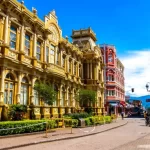Costa Rica vs. Panama: The Real Scoop
Part 3: Health Care
In the first two parts of this series I compared the lifestyle and cost of living in both countries. In this installment I will address their respective healthcare systems.
Good quality medical care is of paramount importance when choosing a country in which to relocate; in some cases it can literally mean the difference between life and death. Good information is the key to making the right decision about where to live, so in this I’ll attempt to give you the basic facts about healthcare you’ll need to make the proper decision.
Costa Rica
I have lived in Costa Rica for nearly 40 years, so I can only write about my personal experiences with the healthcare options here. I have had two minor surgeries in that time; the first to repair a hernia, the second was arthroscopic surgery on both knees. My son had an appendectomy in 2001. All three operations were performed at the Clínica Bíblica in San José. Clinica Biblica, which was was founded in 1929, is the country’s oldest hospital. I have been using Clinica Biblica since the mid-1980s and am extremely happy with the quality of care that I and my family have received there over the years. Now days there are several other, world-class hospitals and clinics in the Central Valley which also provide first-class healthcare.
Costa Rica has two healthcare systems, both from which expats can choose.

The first is the public system, the government-run universal healthcare system called Caja Costarricense de Seguro Social, alsoknown as the Caja. The Caja, like most public systems, is sometimes plagued by long waits, shortages of medicines, and a slow moving bureaucracy. However, I know many expats who use the public system and are very satisfied with the quality of care.
The second is the private healthcare system. This system is comprised of several top quality hospitals and clinics. These centers are affordable, of the highest quality, and are readily available. There are four large, private hospitals that most expatriates use: CIMA hospital in Escazú, Clínica Bíblica in San José, and Hospital La Católica in San José-Guadalupe. Hospital Metropolitano is the country’s newest private medical provider and offers a novel, inexpensive discount program to reduce medical costs. Called MediSmart, many expats who have used the program swear by it.
Both the public and private medical systems are excellent. In fact, the country is a mecca for medical tourism in the areas of cosmetic dentistry, joint replacement, stem cell therapy, and plastic surgery. Indeed one can find the fountain of youth here. See: https://www.cnbc.com/2017/01/13/health-care-tourism-is-booming-in-costa-rica.html for more information. And, for those who want it, there are various private insurance plans available, with the National Insurance Company (INS) being the most popular.
The quality of medical care in Costa Rica is recognized as being excellent. In 2018 International Living chose Costa Rica as the number one country for retirement and relocation. Part of the reason for selecting the country is its healthcare system. International Living said, “Costa Rica offers some of the best healthcare in Latin America.”
Evidence of the quality is that Costa Rica has a longevity rate which is equal to many so-called first world countries. Statistics from the World Health Organization frequently place Costa Rica in the top rankings in the world for longevity. According to official statistics, Costa Ricans who reach eighty-years old enjoy the longest longevity rate in the world. In fact, the country boasts a community centenarians who live on its Nicola Peninsula in an area called a “blue zone.” The availability of good medical care and other factors, such as lifestyle, play an important role in this impressive statistic.
Of importance to those considering relocating to Costa Rica, is that medical costs are low, in comparison to those in the U.S. and even many European countries; typically about one-third to a one-fifth of what is charged in the U.S., depending on the treatment. But don’t just take my word for it, to see a comparison of medical costs here: http://ticotimes.net/costa-rica/medical-costs-vs-us
The lower costs come with the added benefit that many doctors, especially those in the private system, have received their training in Europe, Canada, or the U.S., and speak English.
A further benefit of living in Costa Rica is that many medications which require a prescription in the U.S. are available here over-the-counter, and are much less expensive. If you know the drug you need, ask a pharmacist if you can get it without a prescription; it will save you the cost and time of a trip to a doctor. (Keep in mind that the drug you know probably has a different name in Spanish, but many druggists have cross reference guides.)
Panama
I have not personally used Panama’s healthcare system, but I have spent a great deal of time in the county while researching my popular retirement guidebook, Living and Investing in Panama. After speaking with many expats there,I gained first-hand knowledge of the country and how things work.
Like Costa Rica, medical care and procedures in Panama cost far less than they would in countries like the United States. Basically, Panama’s healthcare options are similar to those offered in Costa Rica in that there are both public and private options.
Public Social Security (Caja de Seguro Social) Hospitals
Foreigners who have a residency visa and cédula (the national I.D. card) can sign up to use the Public Social Security Hospitals. Most towns have some type of public medical facility, however, the best care is in the larger cities, like David, and especially Panama City, where the country’s best private medical facilities are located. Keep in mind that the further away you are from those two major cities, the more likely you won’t have immediate access to top quality health care, and major health issues can necessitate a long bus ride or an expensive ambulance trip. This is the case for both private and public services.
In Panama not all doctors who work in the public system speak English, so you may need a translator to accompany you. Public care is more affordable than private, and waiting times can be very long, with some drugs being scarce.
Like Costa Rica, many medications that require prescriptions back home are available over-the-counter. Ask a pharmacist if you can get them. But remember, the drug may be named something else in Spanish. In Panama, if you have a Residency Visa, you can buy some medicines at a discount at a Public Social Security Hospital. The more expensive prescriptions, however, are often not available in the public system. And, be aware, some drugs can be more expensive in Panama than in the USA or other western countries.
Private Healthcare in Panama
The private system is more expensive than the public, but it is much faster and you are more likely to find doctors who speaks English in that system. Although the private system is more expensive than the public, relative to health care in the US, it is still very affordable. The private system is what the majority of expats use, as well as many middle and upper class Panamanians.
Health Insurance
Since health care is inexpensive in both Costa Rica and Panama, some people simply forgo it altogether; they simply pay out of pocket and self-insure. This is a good option for those who are in “good health” and can afford to do so. If you don’t want to take such a risk, you’ll need to obtain health insurance.
International medical insurance can cover you in both countries, or any other country, but it is by far the most expensive option. It is, however, still reasonable in comparison with similar insurance in many other countries. Such private insurance for expats is available from companies like Worldwide Medical,IMGlobal, and MAPFRE. Blue Shield of Panama provides insurance within Panama only.
In conclusion, Costa Rica has more healthcare options and experience dealing with expat’s and retiree’s needs, even though Panama does offer some attractive discounts on some medicines to foreign residents .
What really sets the two county’s apart is that Costa Rica has an organization dedicated to the needs of expats; the Association of Rentistas and Costericanese Retirees – ARCR (formerly known as the Association of Residents of Costa Rica). This organization, which has been around over 30 years, has the sole purpose of assisting expats to relocate, live, and become permanent residents of Costa Rica. An additional benefit of membership in ARCR is that it offers its members some discounted insurance options for their healthcare needs, including group plans. Something that Panama does not have.
Parts One and Two of this series has been a look at some of the factors to consider when evaluating a retirement relocation. If you detect some bias on my part towards Costa Rica, I apologize. But, with many years of experience with both countries, and when I compare them fairly, it always comes out in favor of Costa Rica.Stay tuned for Part 4



